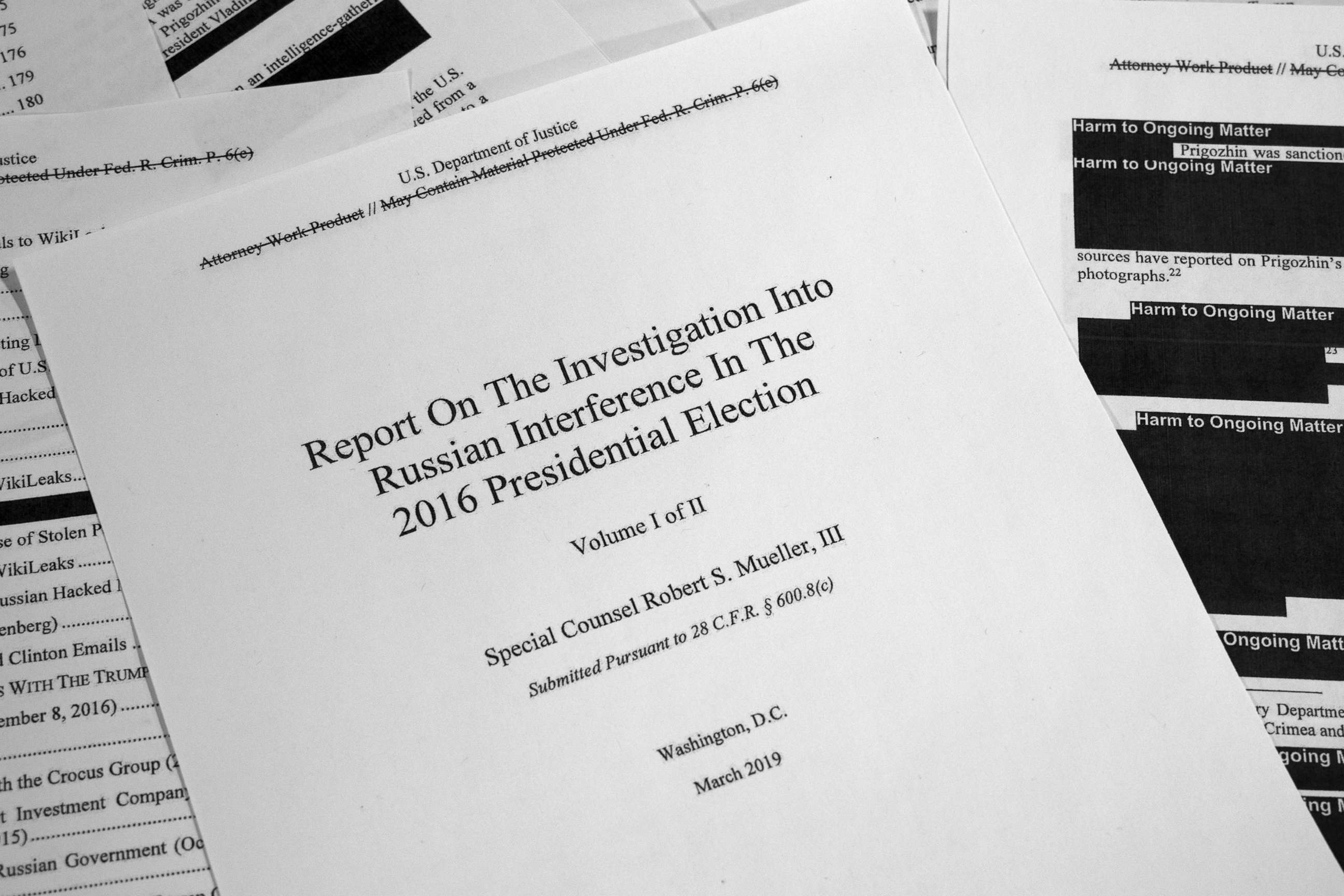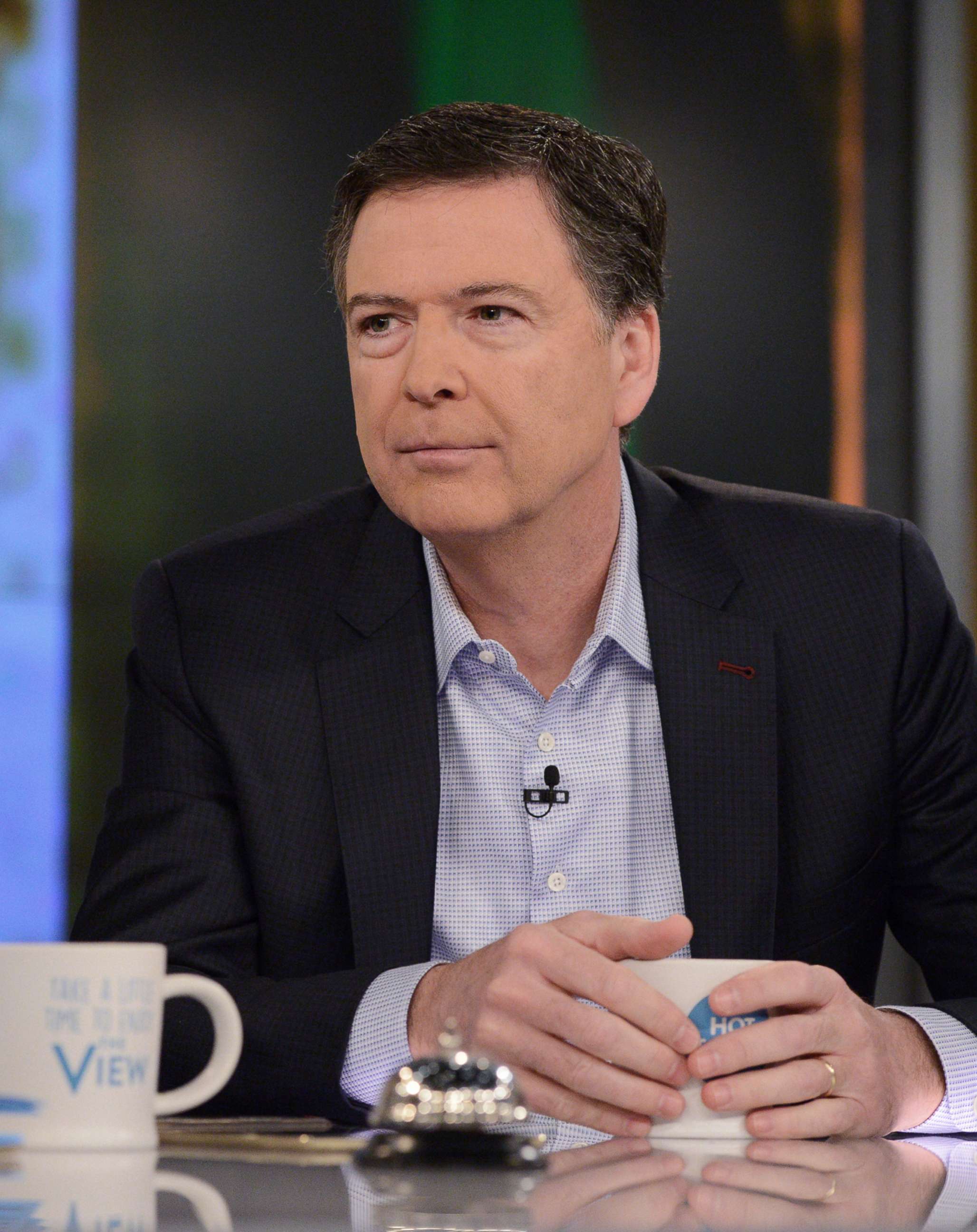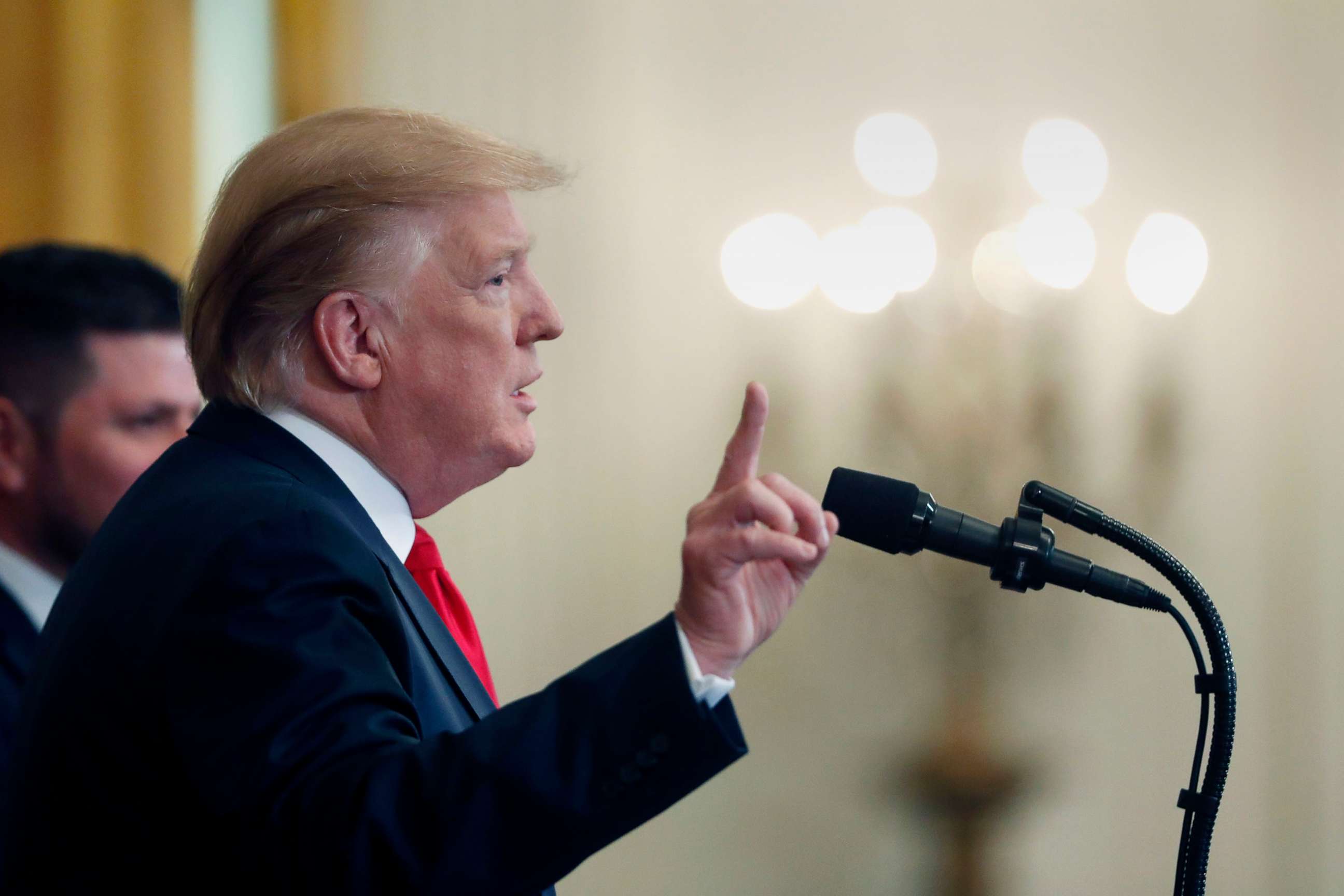FACT CHECK FRIDAY: The Mueller Edition
Welcome to a special edition of ABC News’ Fact Check Friday.
Special counsel Robert Mueller's "Report On the Investigation Into Russian Interference In the 2016 Presidential Election" fact checks a litany of statements made by the president, his administration and his legal team over the past two years. It presents a definitive account of many of the president’s false statements, based on the recollection of the people who worked with him and testified under oath.
Welcome to a special edition of ABC News’ Fact Check Friday.
The first falsehood
While the report from special counsel Robert Mueller’s investigation did not establish that the Trump campaign "conspired or coordinated with the Russian government," it certainly proved there were plenty of contacts with Russians to investigate, something Trump originally denied.
Just days before he took office, then-President-elect Donald Trump told ABC News that there were "no" contacts between his campaign and Russia, "nothing at all."
Over time the president has refined that statement, saying he personally never had any contacts. And for good reason.
The redacted Mueller report, released by the Department of Justice on Thursday, described "a series of contacts between Trump campaign officials and individuals with ties to the Russian government," who were identified as campaign advisers Carter Page and George Papadopoulos, campaign chairman Paul Manafort, former Attorney General Jeff Sessions, the president’s son-in-law, Jared Kushner, and the president’s son, Donald Trump Jr.
While some of those individuals were charged with lying to investigators about those contacts, the report concluded that there was not sufficient evidence to charge that any of them conspired with the Russian government.
Not so fake news
Throughout the nearly two-year investigation, the president often derided unfavorable headlines as "fake news." But the Mueller report pulled back the curtains, exposing that -- at times -- the president sought to mislead the public about news reports that were in fact accurate.
The prime example: A January 2018 headline in the New York Times that Trump ordered then-White House counsel Don McGahn to remove Mueller as special counsel.
"Fake news, folks. Fake news" Trump responded at the time. "A typical New York Times fake story."
Speaking under oath to the special counsel, however, McGahn confirmed the newspaper’s account.
"Call [Deputy Attorney General Rod Rosenstein], tell Rod that Mueller has conflicts and can't be the Special Counsel," McGahn recalled the president telling him, citing to special counsel his personal memos regarding their interactions. "Mueller has to go. … Call me back when you do it."
McGahn refused.
According to the report McGahn also refused the president’s requests to publicly dispute the New York Times report, even though the president had allegedly threatened to fire him if he didn’t.
Ultimately McGahn never wavered and the president didn’t follow through on his threat to fire him.
Weeks later the president falsely denied he’d ever considered firing Mueller. "I haven’t given it any thought," he told reporters.

Misstatements
The report also offers a definitive accounting of the how Trump and his legal team misled the public about their role in crafting an inaccurate response to the infamous June 2016 Trump Tower meeting between members of the Trump campaign and a Russian lawyer promising dirt on Trump’s political rival, Hillary Clinton.
The president's personal attorney Jay Sekulow denied outright that the president played any role in the July 9, 2017 statement, issued on behalf of Donald Trump Jr., that said the meeting was "primarily" related to the issue of Russian adoptions rather than obtaining compromising information on Clinton.
"The president was not involved in the drafting of the statement," Sekulow said on NBC's 'Meet the Press,' on July 16.
But that was not true. As the special counsel described it in the report, "the President's personal counsel repeatedly and inaccurately denied that the President played any role in drafting Trump Jr.'s statement."
White House press secretary Sarah Sanders also got caught up in making false statements about Trump’s role, falsely stating on Aug. 1 that "he certainly didn't dictate, but, like I said, he weighed in, offered suggestions like any father would do."
But as the report notes, several months after the fact, "the President's personal counsel stated in a private communication to the Special Counsel's Office that 'the President dictated a short but accurate response to the New York Times article on behalf of his son, Donald Trump, Jr.'"
The report adds, "The President later told the press that it was "irrelevant" whether he dictated the statement and said, ‘It's a statement to the New York Times ... That's not a statement to a high tribunal of judges.’"
Comey
The report concludes that significant claims Trump made about his interactions with former FBI Director James Comey were not true.
For example, the report stated that there is "substantial evidence" to corroborate Comey’s account of a one-on-one Oval Office meeting in which Comey said Trump had asked him to drop his case against national security adviser Michael Flynn, who was later convicted of making false statements to the FBI.
In May 2017, after Comey was fired, he revealed the content of that discussion to the press. When the New York Times broke the news on May 16, the report included an explicit denial from the White House that Trump made that request, saying "this is not a truthful or accurate portrayal of the conversation between the President and Mr. Comey."
Trump even tweeted that Comey better hope there were no "tapes" of their meeting, suggesting that he might be able to prove Comey was being untruthful. No tapes surfaced and the special counsel’s report indicated that the evidence strongly suggests Comey was in fact telling the truth.

For one, the report states that the President later "acknowledged to Priebus and McGahn that he in fact spoke to Comey about Flynn in their one-on-one meeting." In all, Mueller laid out five reasons why his office considered Comey’s account as more reliable, on page 45 of Volume II in the report.
But that wasn’t the only time when Trump faced obstacles in challenging Comey’s recollection of events. He called Comey’s memo detailing the president’s request for Comey’s loyalty during a dinner meeting between the two "fake" and suggested the dinner was requested by Comey, not himself, for the purpose of requesting to keep his job.
But, according to page 35 in Volume II of the report, "substantial evidence corroborates Comey's account of the dinner invitation and the request for loyalty." For example, the report states that the "President's Daily Diary confirms that the President 'extend[ ed] a dinner invitation' to Comey on January 27." It also points out the Comey contemporaneously told other FBI officials about the request "shortly after the dinner occurred."
Finally, there’s the issue of the president’s reasoning for firing Comey. Pages 64-73 detail the process by which Trump came up with the idea -- during a meeting with a close aide -- to fire Comey, but then later attempted to pin the decision on his Justice Department after the firing received bad press.
The report documented that upon the recommendation of confidant and former New Jersey Gov. Chris Christie, who is now an ABC News contributor, Trump asked Deputy Attorney General Rod Rosenstein to hold a press conference to tell the public that firing Comey was his idea. Christie made the recommendation after Trump told him, falsely, that Trump fired Comey on Rosenstein's recommendation.
Rosenstein refused to do it, and according to the report, "responded that this was not a good idea because if the press asked him, he would tell the truth that Comey's firing was not his idea."
Nevertheless, the White House continued to state that the decision to fire Comey was born out of the Department of Justice.
Sanders said things "not founded on anything."
Sanders was tasked with explaining the president’s decision to fire Comey to the press and, according to the Mueller report, made false statements during a May 10, 2017 press briefing.
The report laid out that contrary to its findings that the decision to fire Comey was Trump’s, Sanders told reporters twice that Rosenstein had decided "on his own" to review Comey’s behavior. In fact, Rosenstein’s review was triggered by the president, who told him he wanted Comey fired.
But it didn’t stop there. Sanders also told the press that day that the White House had heard from "countless members of the FBI" who were dissatisfied with Comey’s performance. But when pressed on that statement by the special counsel, Sanders said the statement was a "slip of the tongue" she made "in the heat of the moment." The report went on to characterize her statements as "not founded on anything."
In an interview Friday on ABC’s "Good Morning America," Sanders attempted to defend her herself -- seeming to double down on her initial statement and retreating from what she told the special counsel’s office under oath.
"Actually, if you look at what I said, I said the 'slip of the tongue' was in using the word 'countless,'" Sanders told ABC News' chief anchor George Stephanopoulos, "but there were a number of FBI, both former and current, that agreed with the president's decision, and they've continued to speak out and say that and send notice to the White House of that agreement with the president's decision."
The problem with Sanders’ explanation -- that her comments amounted to a "slip of the tongue" -- is that she repeated the claim in a White House briefing the next day.
"I can speak to my own personal experience," Sanders said Friday. "I’ve heard from countless members of the FBI that are grateful and thankful for the President’s decision."

Trump’s response
In a series of tweets on Friday morning President Trump characterized statements made about him in the "Crazy Mueller Report" as "total bull----."
ABC News' Alexander Mallin contributed to this report.